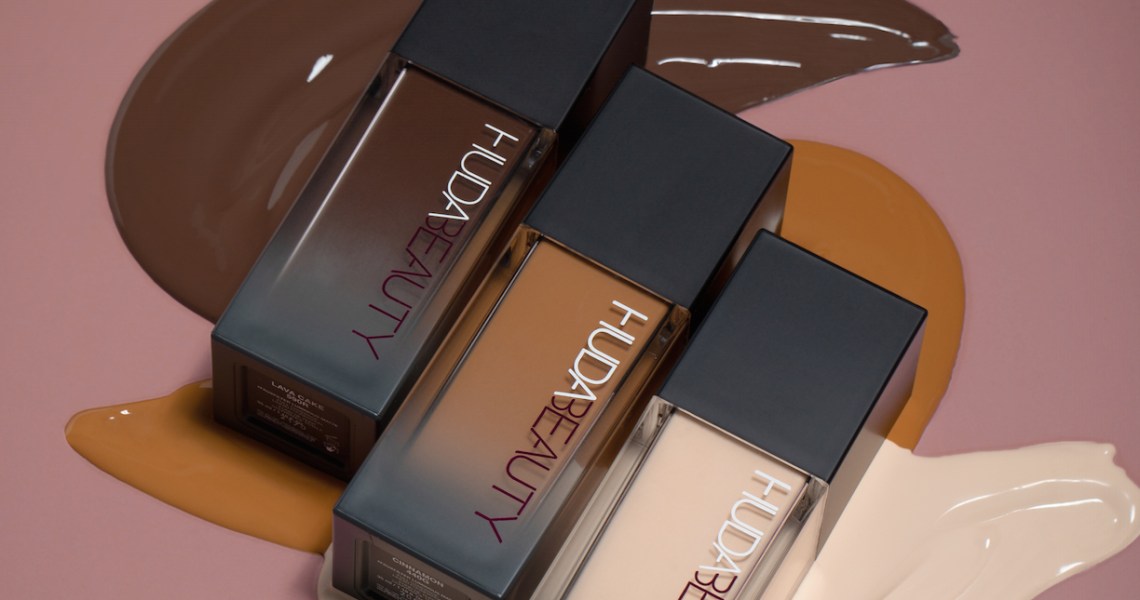China’s stringent Covid restrictions were lifted earlier this year, but a series of beauty brands called it quits in the market before seeing the light at the end of the tunnel.
Since last summer, brands including Too Faced, owned by The Estée Lauder Companies, Huda Beauty and South Korean skin-care brand The Face Shop have left China’s $7.4 billion beauty and skin-care market. While Too Faced and Huda Beauty shut down their shops on Alibaba’s Tmall Global, the latter closed all of its 38 physical stores.
As an OG influencer brand, Huda Beauty’s unannounced departure in October left avid local customers disappointed. They took to social media platform Xiaohongshu to inquire about the brand’s whereabouts before it drew wider media attention this month. In March 2020, Huda Beauty made a high-profile entry into the market through Tmall Global, China’s largest cross-border e-commerce platform. Hundreds of other brands launched on the platform in the same year, according to media reports. Subsequently, the brand was regularly spotlighted in top influencer Austin Jiaqi Li’s livestreams. Li, known as the ‘lipstick king’ in China, has over 72 million followers on Taobao Live, which is also owned by tech giant Alibaba. The Dubai-based brand did not respond to inquiries for comment.
While Covid’s economic headwinds are most likely to blame for the exodus, experts said that stiff competition, due to rapidly-changing marketing rules and consumer preferences, is the biggest challenge for beauty brands in the market.
“There was a popular formula for a brand’s success [in China]: the combination of one viral product, [a presence in] Li Jiaqi’s livestreams and 5,000 Xiaohongshu notes,” said Valentine Zining Chen, founder of 3-year-old China-based Sober Beauty. Xiaohongshu is an Instagram-like app, and “notes” are the app’s term for posts. “This formula does not work anymore.”
Following experience at The Estée Lauder Companies, Coty and L’Oréal, Chen launched Sober Beauty, one of China’s first beauty brands certified “clean” by the U.K’s The Vegan Society, just before Covid hit the market. The timing actually proved beneficial, as Covid amplified global consumers’ desire for clean products.
Sober Beauty represents a growing crop of domestic brands that are primarily sold online. It has a presence on local social platforms including Xiaohongshu and WeChat, in addition to Taobao.
“Domestic brands [in China] are … more digitally attuned to their target audience and generally more agile in responding to the changing retail environment,” said Adam Knight, co-founder of U.K.-based digital agency Tong Digital.
“At the top end of the [local] market, the big multinational houses are massively investing in supply chain and R&D. At the lower end, a multitude of niche brands compete on almost imperceivable unique selling propositions. More [overseas] brands will inevitably pull out of the market,” he said.
Another explanation for the exit may be that Chinese consumers are buying from diverse channels, not just directly from a brand.
CC, a Huda Beauty customer of four years who regularly posts beauty tutorials on Xiaohongshu to her 10,400 fans, said she has purchased the brand’s products from both the Tmall Global store and from daigou, who are shoppers buying products abroad for China-based consumers. She preferred to go by her pseudonym.
“The brand’s official channel was more expensive,” she said, adding that Huda Beauty’s eyeshadow colors are also becoming less creative.
Compared to smaller brands, it’s easier for bigger players to stand out on traditional e-commerce platforms because the brands are already known. That’s less so for smaller brands, said Shiyu Wang, a partner of Qiming Venture Partners focusing on the consumer sector.
Wang’s team bet on Chinese beauty brand Focallure in 2022, dedicating an undisclosed sum to the brand as a lead investor. Compared to the highly competitive home market, Wang is more bullish on the rising potential of the beauty market within Southeast Asia including Indonesia and the Philippines, which has around 650 million population.
Benefits that China’s saturated market has provided Focallure include its talent and strong supply chain. Wang expects more Chinese brands will also expand to less competitive environments.
China’s border may have opened up since early January, but it has yet to fully recover, Sober Beauty’s Chen said. She added that consumer sentiment is expected to be much more positive after the summer of 2023.
“If you keep [the operation] lean and maintain a certain level of profitability, that’s the way [for brands] going forward. And that’s our motto for 2023,” she said. Her team is currently made up of 10 people.




